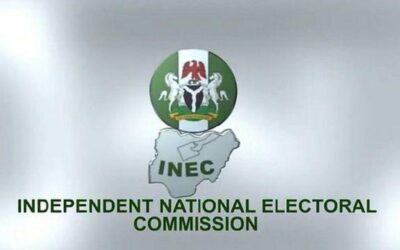10-Year Soccer Masterplan: A Rescue Mission For Domestic Football
On the 4th of June 2021, President Muhammadu Buhari instructed the Sports Ministry to team up with Nigerian Football Federation and come up with a 10-year National Football Master Plan for Nigeria. President Buhari gave the order when he received the Minister of Youth and Sports Development, Mr. Sunday Dare, and NFF President, Amaju Pinnick at the First Lady’s Conference Room, Presidential Villa, Abuja.
The President used the forum to voice his vision for Nigerian football during the meeting, ‘‘I want to see Nigeria’s football develop and move in a more dynamic trajectory from football administration to youth and grassroots football, talent hunt and use of Nigeria’s home-based talents.‘‘Nigeria also needs a more privatized and better-organized football regime that can rival those in Europe and America,’’ he said.
President Buhari advocated a team effort among NFF, the Ministry of Sports, and other investors in the Nigerian sporting universe. He specifically pinpointed the need to develop a FIFA-approved and practicable 10-year football Master Plan for the country stating that it is a veritable way to guarantee youth empowerment and development in the country.
President Buhari also encouraged corporate organizations to plow into sports improvement, vouchsafing his dispensation’s dedication to making a productive business of sports.
He is confident that the Sports policies that will arise as a result of the special plan and NFF president membership of FIFA Council “will be the catalyst that turns football activities and other things associated with it into key contributors to the national economy besides providing benefits that will lead to the advancement of football in Africa and Nigeria.”
While congratulating the NFF president Amaju Pinnick on his electoral victory into FIFA Council, President Buhari stated, “The position on the Council of the world’s football governing body, FIFA, comes at a time when Nigeria is determined to turn the fortunes of her sports development around through better infrastructure, more investment both public and private government incentives.
“Without prejudice to the continental nature of your assignment at the Council, I urge you to use your position to ensure Nigeria’s sporting image receives a boost.
‘‘I know this position will assist Nigeria to get technical and financial support from FIFA, and your position should create a platform for other Nigerians to enter into the FIFA family and other international Sports Federations”.
Mr. President expressed his recognition of sports’ capacity to engender peace, foster unity, and promote sound health of body and mind. He expressed the greatness of football and how much of a football fan he is, “one of the greatest sports is football and Nigeria is a great football nation. I am myself a keen follower of football.’’ The new FIFA Council member, Pinnick, waxed lyrically about President Buhari for his passionate backing of football, ‘‘Without you, I couldn’t have won election into FIFA Council. Your name is highly respected across the continent.’’ He then went ahead to assure the president that he would be a creditable Nigerian diplomat promising to ‘‘use the office to build Nigerian football, in conjunction with the Ministry of Youth and Sports Development.’’
Also speaking at the meeting, the Minister of Youth and Sports Development, Mr. Sunday Dare expressed gratitude to the President for encouraging sports development in the country, and for exalting sports beyond the scope of mere recreation into the altitude of economically viable activities. He proceeded to signal that the 10-year master plan, as well as latest version of sports policy, would be ready in no time.
As laudable as the proposed plan may sound, there are vital questions to be answered. Can any master plan develop Nigerian football or sports in isolation? Can Amaju Pinnick’s membership of FIFA Council be of major direct positive influence on Nigerian football development?
Read Also: Can NPFL’s Resumption Halt the Relentless Slide in Nigeria’s Sports Business?
Most unlikely if other conditions remain the same. In the past 30 years, Nigerian football deteriorated gradually and steadily in the hands of sports administrators. Any country that does not nurture its sporting team will never come up with the best team that can win any major competition. You don’t pick a team based on sentiments but on merit. Every player must earn his spot on the team with talent, hard work, and the willingness to play as a unit.
It should not be a sin to inculcate the principle of continuity in Nigerian football policy. Nigeria’s Golden Eaglets have won the FIFA U-17 World Cup about five times: 1985, 1993, 2007, 2013, and 2015. It is the only team to achieve such a feat in the history of the competition. But the feat does not reflect on performances at Senior World Cup competitions because we hardly do creative monitoring and upgrading of the junior teams. There is no continuity. If you trace the individual stories of Nigeria’s junior World Cup winners, you would weep for a lot of them.
Sports administrators will never be able to secure sponsorship for Nigerian Professional League so long public patronage and interest is on the low side. How can sports administrators inspire public interest and patronage? The public-private partnership will ensure that world-class sporting facilities are put in place. Nothing turns off football lovers, like watching your team play on a terrible field. Segun Odegbami once wrote, “The football field is the most important thing in football, in developing it and in marketing it!” From Liberty Stadium in Ibadan to National Stadium in Lagos, there is no gainsaying that our stadia are in shambles. We have turned most of them into religious crusade arenas.
Gone are the glorious days of Liberty stadium when it was the darling of some South American and European teams. Nigerian football is not yet at that marketable stage because in football, presentation matters. The teams must play in top-notch, beautiful turfs to bring out their beauty. The place of first-rate coaching, excellent team tactics, individual player display of brilliance and team spirit, and first-class commentary with premium media coverage are other factors that will always attract the attention of the world any day. And before you know it, the country is trooping to the stadium week in week out.
European football provides all the alluring sight and entertainment with top-quality media coverage that practically raises the game of football to a religion. These in turn produced the never-say-die football fans who can’t help but go to the stadium every week. All of these affect the quality of football and sponsorship. No wonder FIFA went through scandals upon scandals without them having any significant effect on the quality of football and sponsorship. Great football will always attract great sponsors, players, and spectators. And we can never have great football without all of the aforesaid observations.
Any football master plan that does not focus on rigorous talent scouting from Secondary Schools, Higher Institutions, and our slums should be jettisoned. Any policy that does not seek to deregulate football and encourage private sector involvement in infrastructural development and maintenance will not yield the right result.


